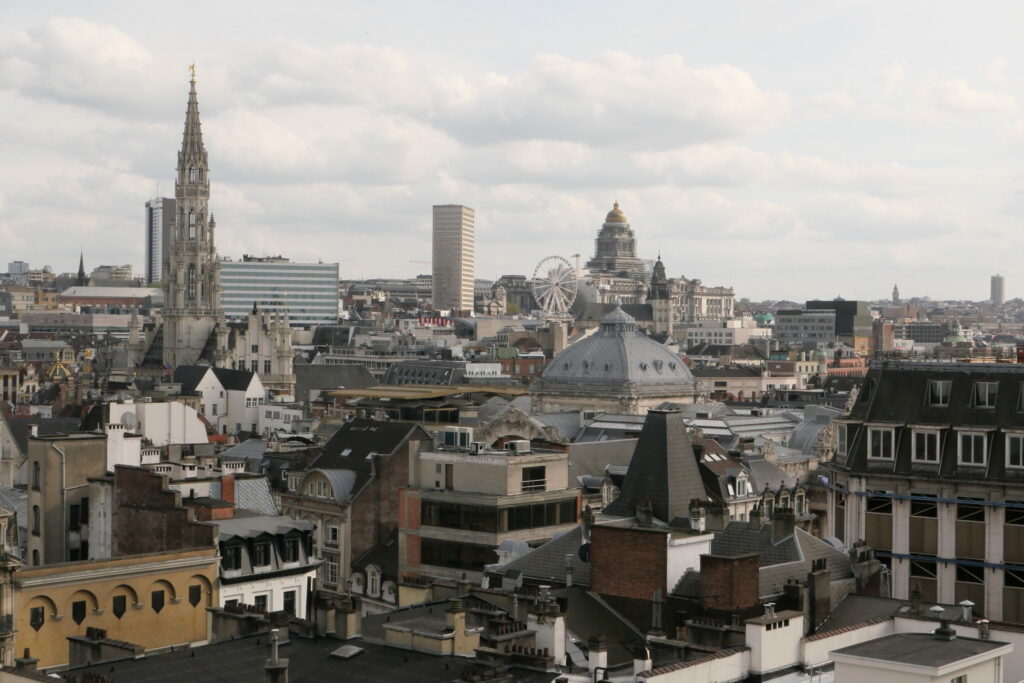The Brussels economy should return to its pre-pandemic pace from 2026, according to analysis by the Brussels Institute for Statistics and Analysis (IBSA).
The institute's latest report predicts that growth in the Brussels-Capital Region's economy will return to pre-2020 levels over the 2026–2029 period. Since 2020, the capital's economy has spent two years in post-pandemic recovery, followed by two more slow years marked with spiralling inflation.
When the first lockdown measures were announced in spring 2020, trade association BECI estimated that they would cost the Brussels economy €5 billion per month.
In 2021, Governor of the National Bank Pierre Wunsch said that Belgium's economic recovery from the pandemic was "stronger than expected but uneven", with some sectors showing resilience and others hit with continuous rising costs and uncertainty.
Belgium's economy out-performed most of its neighbours at the time, driven by a successful vaccination campaign and public finances that were able to shield household income, labour relations, and businesses from the worst economic shocks (although the bailout measures did leave Belgium with high levels of public debt in 2024).
Growth slowed after the post-pandemic economic rebound. GDP in Brussels grew in 4.6% in 2021, by 1.4% in 2022, and by 2023 had fallen to 0.7% (compared to 1.4% nationally), and domestic employment grew just 0.4% (compared to 0.8% nationally).
The difference in growth compared to the rest of the country can be explained in particular by the absence of any real recovery in the retail and hospitality sector in the Brussels Region.
Back to old form
IBSA predicts that in 2024, GDP growth in Brussels should rally and rise to 1.4%, although job creation will remain very limited at 0.1%. Positive momentum will be largely thanks to dynamism in the financial sector.
This chimes with regional forecasts published by the Federal Planning Bureau this summer, which predicted that GDP in Brussels would "rebound" this year. The latest IBSA analysis predicts that the Brussels economy will return to activity levels seen before the pandemic, with annual growth of 1% for GDP and 0.4% for employment. Over the 2026–2029 period, 12,000 jobs should be created in the Capital Region.

Protestors pictured during a demonstration by Audi Brussels workers supported by the national trade union in solidarity, on Monday 16 September 2024 in Brussels. Credit: Belga / Dirk Waem
The Institute noted that the number of active Brussels residents (who are working or looking for work) has increased more than in Flanders or Wallonia. In 2023 and 2024, the number of active residents in Brussels increased by 1.9% and 1.3% respectively, compared to +1.3% and +1.1% in the rest of Belgium.
The current employment rate in Brussels is "unprecedented in forty years", according to IBSA, reaching 60.6% in 2024 and up from 60.5% in 2023. The population actually in employment in Brussels has never been so high and has increased over the last two years, by 1.7% in 2023 and then 1.0% in 2024.
Paradoxically, unemployment has also increased in the capital – especially due to the change in the procedure for registering as unemployed for CPAS beneficiaries. This year, the unemployment rate is expected to be almost 15%. It is projected to gradually decline to 13.6% by 2029, which would be its lowest rate since 1991.

